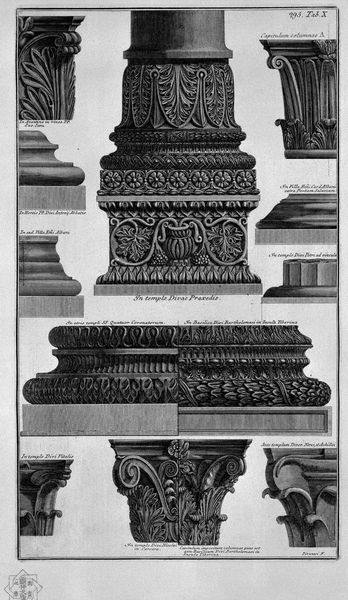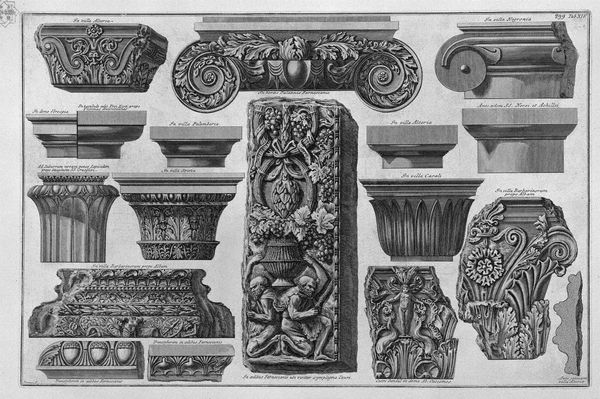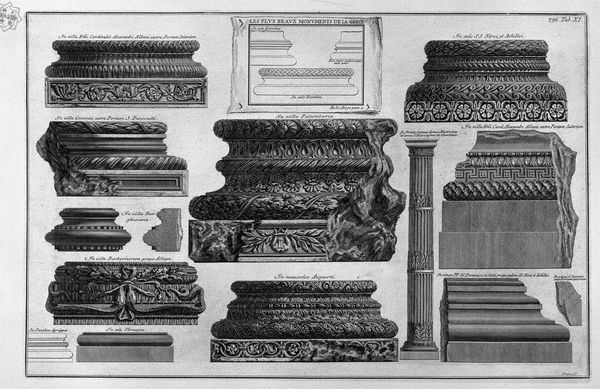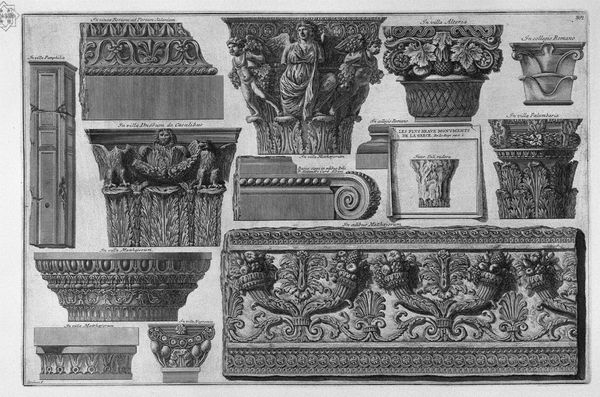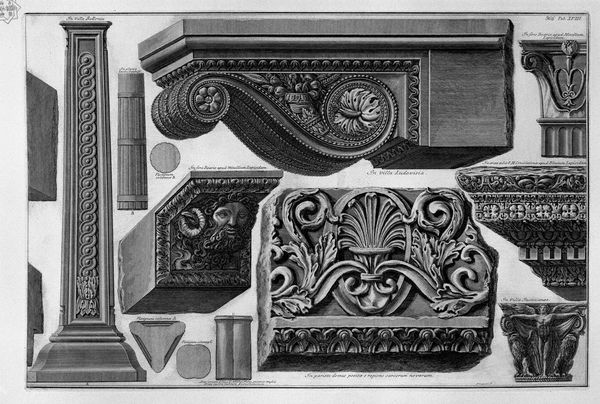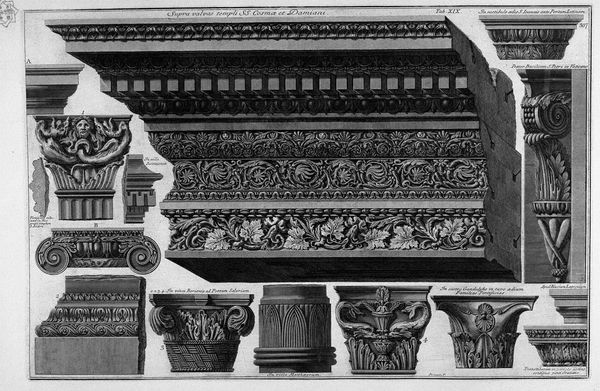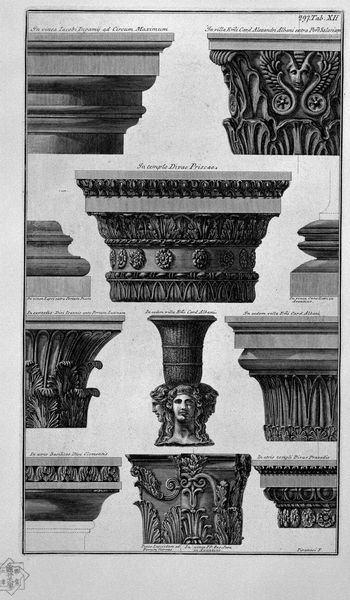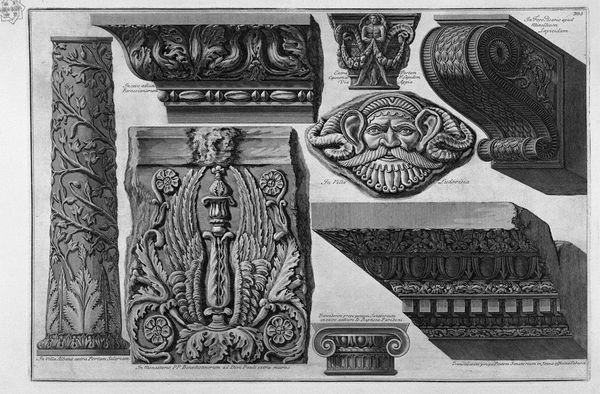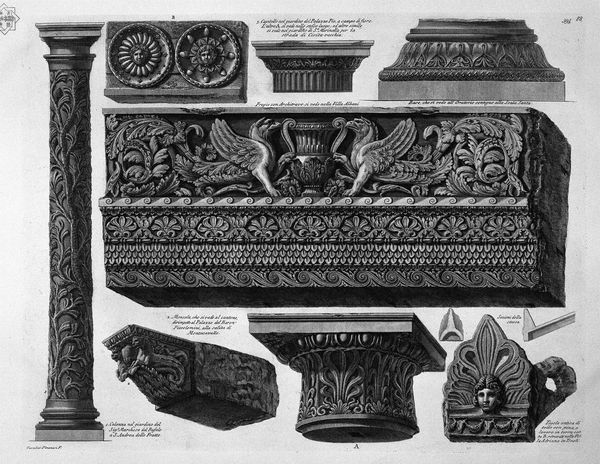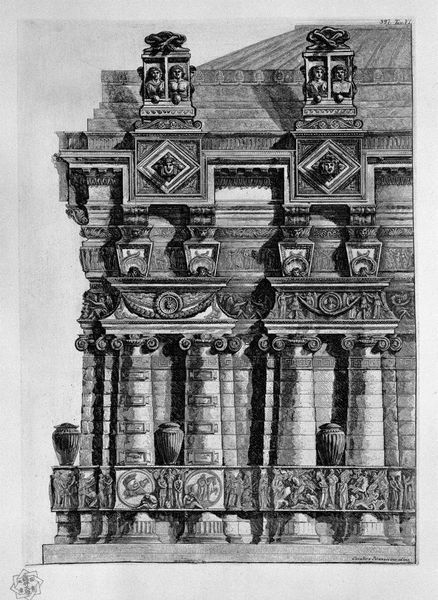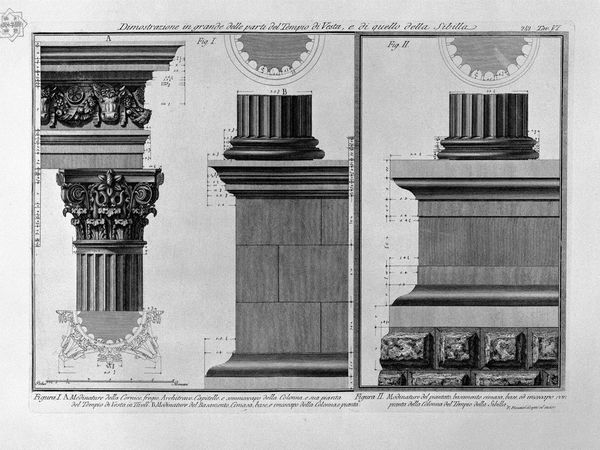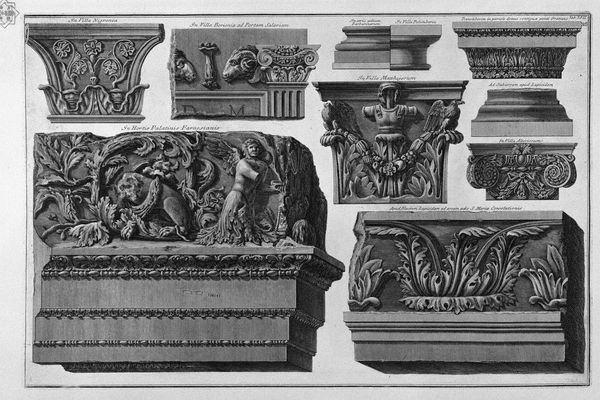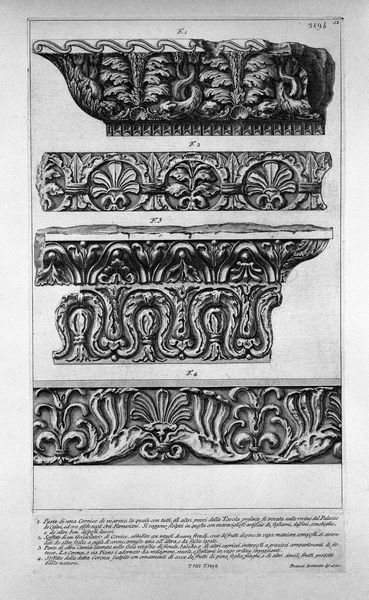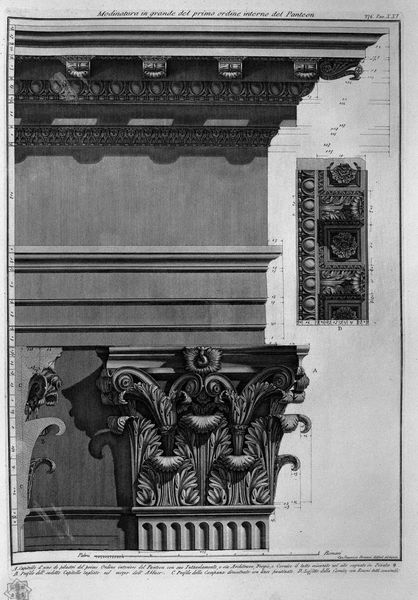
Capitals, friezes, cornices (Farnese Gardens, Santa Maria in Trastevere, etc.)
0:00
0:00
drawing, metal, engraving, architecture
#
drawing
#
neoclacissism
#
metal
#
sculpture
#
historic architecture
#
form
#
geometric
#
ancient-mediterranean
#
column
#
line
#
engraving
#
architecture
Copyright: Public domain
Editor: This engraving is called "Capitals, friezes, cornices (Farnese Gardens, Santa Maria in Trastevere, etc.)" by Giovanni Battista Piranesi. It depicts various architectural fragments. I am struck by how these meticulously rendered details almost feel like historical documentation, a way to preserve and share Roman artistry. What do you see in this piece, from a historical perspective? Curator: For me, this image reflects a significant shift in how art engaged with the public and the past. Piranesi's work isn't just documentation, it's an argument about cultural authority. Look at how he presents these fragments: monumental, theatrical, and meticulously detailed. How does that impact your understanding? Editor: It makes me think about the role of art in shaping our view of history. It's like he's curating a narrative, emphasizing the grandeur of Rome, influencing how viewers perceive it. Curator: Exactly. And this speaks to the complex relationship between art, politics, and power. Piranesi lived in a time when Rome was both a physical place and an idea. His engravings, distributed widely, reinforced Rome as the cultural capital of Europe. Did this production of artwork influence the politics of that time? Editor: It probably strengthened Rome's cultural and historical importance as other countries developed their national identity through art. Curator: Precisely! These images influenced architectural styles and how people thought about the city for centuries. What do you take away from our discussion? Editor: That Piranesi's engravings aren’t just neutral depictions, but powerful statements about Rome's enduring influence, shaped and disseminated for a specific cultural and political purpose. Thanks for the insights.
Comments
No comments
Be the first to comment and join the conversation on the ultimate creative platform.
